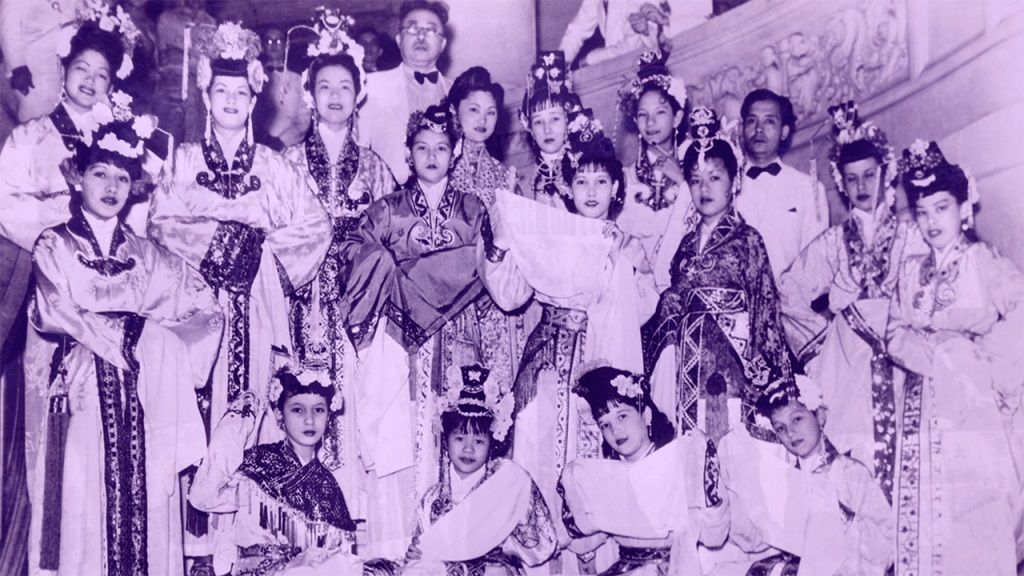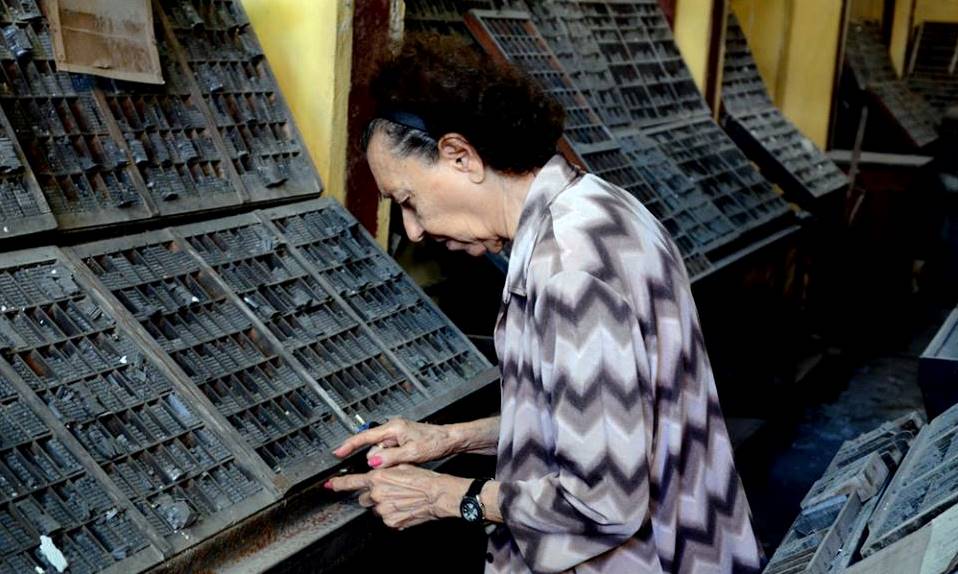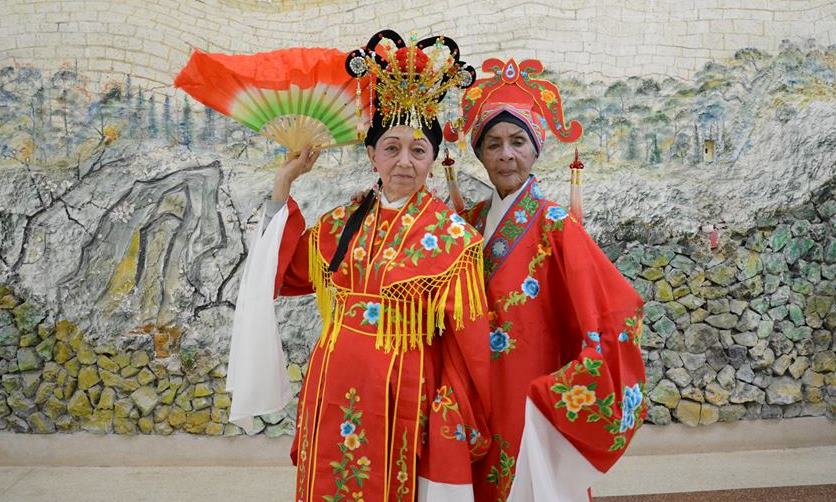Havana Divas tells the tale of two childhood friends working to revive interest in Cantonese opera in Havana’s Chinatown. Director Louisa Wei discusses her latest documentary and a hundred-and-fifty years of Sino-Cuban history.
Havana Divas explores the history of Cuba’s Chinese community through the eyes of Caridad Amaran and Georgina Wong Guitierrez—two childhood friends who grew up in Havana’s Chinatown in the 1930s and 1940s and who played an instrumental role in popularizing Cantonese opera there. Now in their eighties, the pair has spent almost twenty-five years trying to preserve the memory of Cantonese opera in the community and has reached out to those in both Hong Kong and Mainland China in an effort to learn more about their own ancestors.
The film is also the latest feature-length work from Hong Kong-based director S. Louisa Wei (whose previous documentary, Golden Gate Girls, examined the life and work of Esther Eng—one the first female movie directors with ties to Southern China). As Wei explains, her current project stemmed almost entirely from a chance encounter with Caridad and Georgina more than six years ago.
“We were introduced to them back in 2011 when they came to Hong Kong for the first time,” she recalls. “At the time, we made a very quick decision to go with them to the countryside in China to worship their ancestors’ home, but then we discovered that they really enjoyed singing Cantonese opera.”

In addition to its focus on Cantonese opera, the film helps trace more than a hundred-and-fifty years of Sino-Cuban history from the introduction of Chinese laborers to Latin America in the mid-nineteenth century all the way up to present-day Havana Chinatown. And, it was this history which Wei only first became aware of while researching Golden Gate Girls.
“I realized there was this whole Chinese immigration story going back more than a century,” she says. “To have that as a background and to have all sorts of these magical things happening during World War II and have all these people crossing boundaries was what fascinated me about with this story.”
In Havana Divas, Wei also offers some fascinating insight into the effects which events such as the Second Sino-Japanese War (and ultimately World War II) and the Cuban Revolution had on Chinese families in Asia and the Americas.
"I think my role is to be a storyteller and to present each piece of the material in a way that people can continue to learn from."
“A big part of Hong Kong’s population actually came from Mainland China—especially from Canton [present-day Guangdong] and Fujian,” she points out. “Because those provinces also provided the most overseas Chinese laborers, hearing stories about family members traveling into Latin America, it has given people a chance to imagine what might have happened to their lost relatives.”
In assembling the documentary, Wei spent long hours to compiling archival photographs, newsreel footage, and first-person interviews. Along the way, she explains, working on the project also allowed her to exercise her own philosophy about her role as a documentarist.
“I don’t really believe in the control of the director,” she admits. “Instead, I think my role is to be a storyteller and to present each piece of the material in a way that people can continue to learn from.”

As well as researching and shooting, Wei also edited the documentary herself—a process during which she spent a great deal of time laboring over the structure of the film and trying to gauge how the audience would respond to it.
“I invited friends to see different versions of the film to see which parts they would react to,” she explains. “That helped me to make decisions about what material to keep and then I would work on the music and to see which song which would match each part.”
All total, Wei spent more than six years working on the film—during which time she traveled to Havana and Caridad and Georgina made a second trip to China.
"Going to Cuba was also very exciting—to see such a photogenic city in ruins, it’s like going back in time, only you’re in present tense."
“There was a lot of waiting and asking around and doing research in between these filming periods,” she recalls. “I also went through some lost archives to search for Cuban images in order to represent the time and the space that Caridad and Georgina knew when they were young girls.”
Since premiering Havana Divas in Hong Kong, Wei says the response she has received from audience members has been both surprising and overwhelming. Nevertheless, she also admits she has difficulty picking a favorite moment.
“It’s very hard to say which part was the most interesting, but the first bit of excitement came with the first song that we see Caridad and Georgina doing in the film,” she says. “Going to Cuba was also very exciting—to see such a photogenic city in ruins, it’s like going back in time, only you’re in present tense.”

Furthermore, for a filmmaker whose previous work has focused largely on forgotten figures from by-gone eras, being able to meet in person and converse with her documentary subjects was like being in the company of living history.
“This is the first film I made with the protagonist still living—that sounds weird, I know,” Wei says. “But, I think that having them able to come to the camera and speak for themselves and sing for the audience is very entertaining.”
Listening to Wei speak about the film, it is clear—despite all of the hard work which went into making it—that the project has been very rewarding and that the experience has had a long-lasting and personal effect on her.
"I’m a dreamer and I don’t give up. If think something is interesting, I can work on the same project for a long time."
“I’m a dreamer and I don’t give up. If think something is interesting, I can work on the same project for a long time,” she says. “So, it’s always fascinating to see someone else who doesn’t give up their dream—that would be my ideal subject.”
The release of Havana Divas also marks the 170th anniversary of the arrival of the first Chinese immigrants to Cuba and the film offers some valuable understanding about the spread and influence of Chinese culture throughout the Americas and touches on numerous universal themes which affect both Chinese and Westerners living overseas today.
Ultimately, Wei says that she hopes to be able to share Caridad and Georgina’s story with an even larger audience and that she believes their story has the ability to move and inspire others in the same way it has moved her. “To see these ladies in their eighties never giving up and still building something on their childhood fascination,” she concludes, “It gives me hope that it’s not terrible to grow old because you still have so many journeys waiting for you.”




